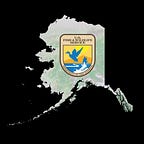So, you want to be a fish biologist…
(Or, you’re just curious about us)
While the other kids were dreaming about becoming the professionals they encountered and admired — their doctors and teachers, the veterinarians that fixed their dogs and cats, the firemen that visited their schools — we were spending our formative years dinking around in streams and fishing with our own familial idols. Or stumbling into fisheries departments in college and dropping our pre-vet dreams as we made new laid-back friends. Whatever the reason, we followed a lesser-known but very rewarding career path: fish biology!
Hi, how was your day? It was awesome, I played with fish. That’s nice dear. You don’t mind washing your hands just one more time, right?…
What people think we do:
vs. what we actually do:
Fisheries jobs have really diversified (both in scope and types of people entering the field) as environmental and allocation issues have become more complex and technologies have advanced.
Fish biologists tend to be well-grounded in the relevant -ologies: stream ecology, limnology, ichthyology, hydrology. We’re also pretty nerdy about statistics, the scientific method, and peer-review. The broader fisheries professional field now includes not just biology and management, but also genetics (stock apportionment anyone?), communications, fish-passage engineering, population dynamics and modeling, landscape ecology…the list goes on.
Out of necessity, fish biologists possess practical skills too:
“People are surprised at the amount of non-science work that‘s a part of these positions…like being able to change the oil on a boat, chop firewood, or dig an outhouse hole...”
“The type of work we do in Alaska often includes working in extremely remote places only accessible by helicopter, float plane, boat or all-terrain vehicle. A lot of planning and coordination make it all come together. And a lot of training to make sure projects get completed and everyone comes home without any major injuries.”
Good people skills, a sense of humor, and lots of coffee also come in handy:
“Good people skills are extremely important when you’re isolated with very few crew mates for the summer.”
“The hard work, camaraderie with your crew mates and the sense of accomplishment in meeting project objectives is very satisfying.”
“Never underestimate the amount of coffee people can drink in two months. Buy what you think is enough, and then buy more…”
“When mother nature throws everything at you, that’s when your true character comes out and you can build lasting friendships, memories and skills you will carry forward in your career.”
What do you like best about your job and working in Alaska?
“The opportunity to work in spectacular, pristine, remote locations that very few people ever have the opportunity to visit.”
“You can’t beat working in Alaska. There are so many different opportunities to work in some of the most unique and pristine environments in the world.”
“The ecosystems and fisheries work in Alaska are both fascinating and breathtaking.”
“I’m always impressed with the passion and professionalism my colleagues bring to the job. Honestly, the people I get to work with have as much to do with my career satisfaction as my fisheries work.”
“For me, the best thing about working in Alaska is the people and governance. Alaska Native cultures are all, to some degree, based on fishing, and today they’re claiming their rightful seats at the table in fisheries policy and decision-making. This is exciting!”
“It’s important work, and that’s something that you need to feel from any job you’re going to invest your time in.”
Seasonal fisheries technician positions in Alaska
These are for the adventurous as harsh weather, an abundance of biting insects, and remote living conditions can be challenging. However, the rare opportunity to work with intact assemblages of native fish species, while surrounded by abundant wildlife and pristine wilderness, will more than compensate the tolerant individual!
What advice would you give someone applying to one of these positions or entering the field?
“It‘s worth it. You’ll never have an experience that will compare.”
“Don’t be afraid to ask questions! You’ll meet a tremendous variety of people when you work in fisheries in Alaska, and they all have different experiences and skills.“
“It’s important to play up the traits that make you a candidate — a great attitude, love of the outdoors, camping experience, a willingness to learn, good people and practical skills.”
“The relationships you build at the beginning of your career will reverberate through time and space. The cadre of fisheries professionals is surprisingly small, and you’ll be surprised how few degrees of separation there are between us, no matter where you work.”
“Take every opportunity that comes your way to gain experiences in fisheries. The experience you gain, the places you go, and the people you meet will have a lasting effect on your career and life.”
If selected, you will initially report to one of three duty stations in Fairbanks, Kenai or Anchorage. However, projects are located throughout the state, including extremely remote areas in the Alaskan bush. Travel to field camps includes small aircrafts, boats, and all-terrain vehicles.
Projects include (but aren’t limited to):
- monitoring salmon runs using fish weirs, digital video equipment, and sonar
- conducting abundance estimates of resident fish species
- documenting fish movement using radio telemetry and PIT tags
- Inventorying fish habitat
Go here to learn more about how to qualify as Fish Biologist. It’s never too early to set your sights on fish biology!
Positions are posted on www.usajobs.gov.
Katrina Liebich is a Public Affairs Specialist based in Anchorage Alaska.
In Alaska we are shared stewards of world renowned natural resources and our nation’s last true wild places. Our hope is that each generation has the opportunity to live with, live from, discover and enjoy the wildness of this awe-inspiring land and the people who love and depend on it.
For more on Alaska’s fish and their habitats, follow us on Facebook Twitter or catch our award-winning podcast “Fish of the Week!”
